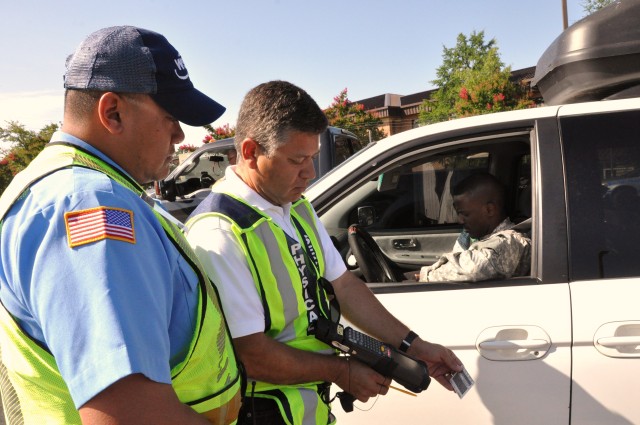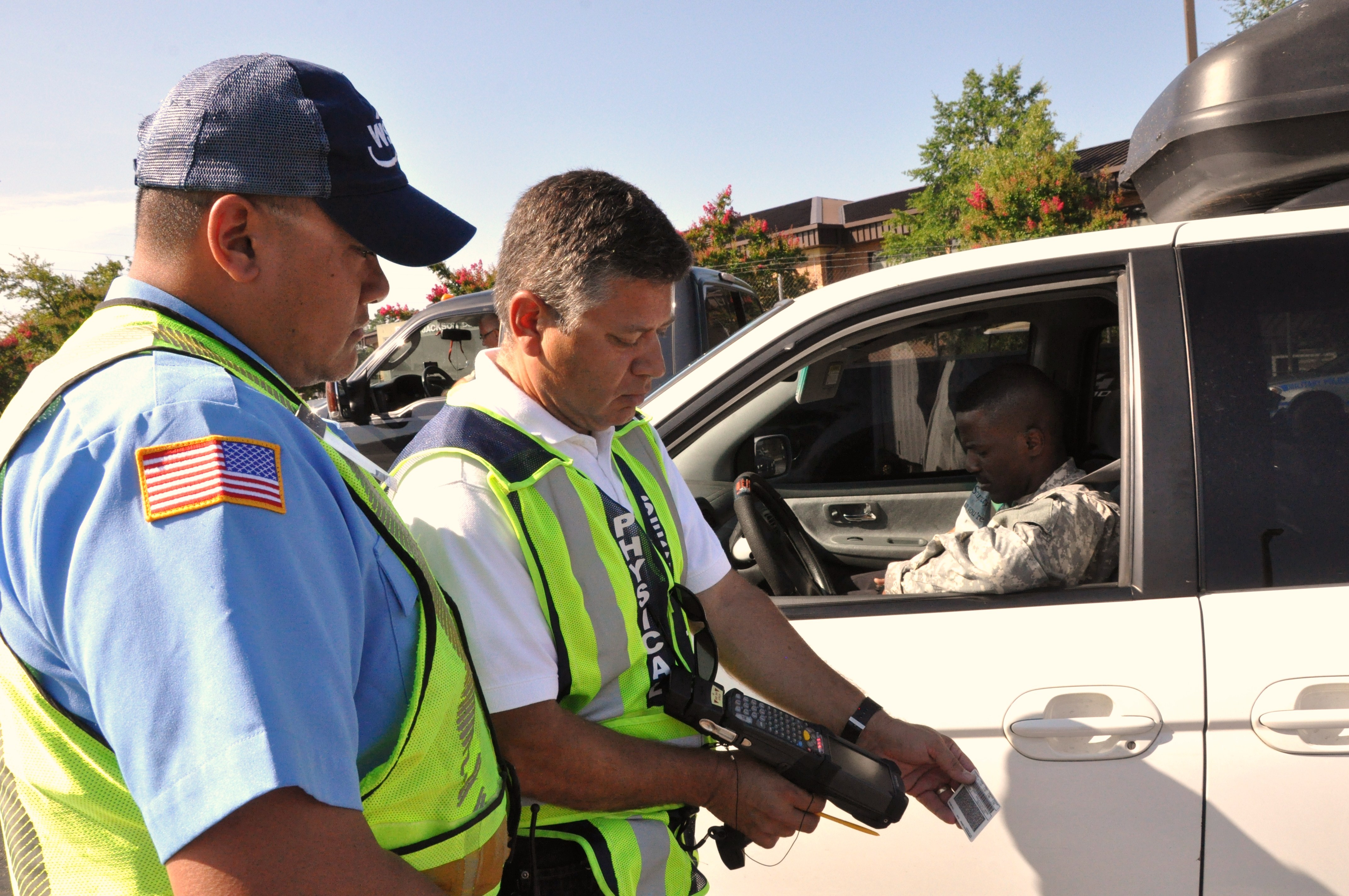FORT JACKSON, SC -- Fort Jackson now has a new line of defense for those wanting to enter the post - Defense ID system handheld scanners.
The Defense ID system screens people coming onto post by quickly scanning various forms of identification, including military identification cards, driver's licenses and passports, and comparing them to more than 100 consolidated databases, including an authorization list generated by post security and criminal databases.
"The device will allow us to detect people who should not be on the (post)," said Patrick O'Connor, deputy director of the Department of Emergency Services. "Initially, we expect a lot of hits of individuals who do not have post access, but once word gets out on the street, then people who shouldn't be (here) will stay away," he said.
O'Connor said that he expects the process of getting through the gate to slow down until guards and individuals entering Fort Jackson become familiar with the new system.
"From my experience at other installations, for the first couple of months there will be an increased delay at the gates," he said. "However, once everyone gets used to using the system, there are huge security benefits and decreased wait times at the gates."
Byron Jones, chief of security, expects the training process of the installation's nearly 80 security guards to take approximately two weeks, but said the program should be fully operational by Saturday's annual Torchlight Tattoo event at Hilton Field.
"We have to train each guard while they are working at the gate, but the security benefits of the device are substantial," Jones said. "The scanners will improve (security) at Fort Jackson because they help to protect the assets of the installation by preventing terrorism, espionage and wanted criminals from entering the facility."
Rodreckeus Ballen, project manager, said he believes the scanners will make gate guards more efficient in managing who has access to the installation.
"The scanner system is just one more tool to help security officers protect Fort Jackson," he said. "Security officers are still responsible for checking the photo to make sure it matches the presenter, looking for suspicious activity and reporting it and checking for fake IDs or IDs that have been tampered with."
O'Connor said that the advantages of the system are not limited to heightened security and decreased wait time at the gate.
"A study conducted by the environmental management branch, showed that the (new) system will reduce emissions from vehicles by approximately 36 percent by lowering the time spent idling ... so the system will make Fort Jackson more eco-friendly, as well," he said.


Social Sharing